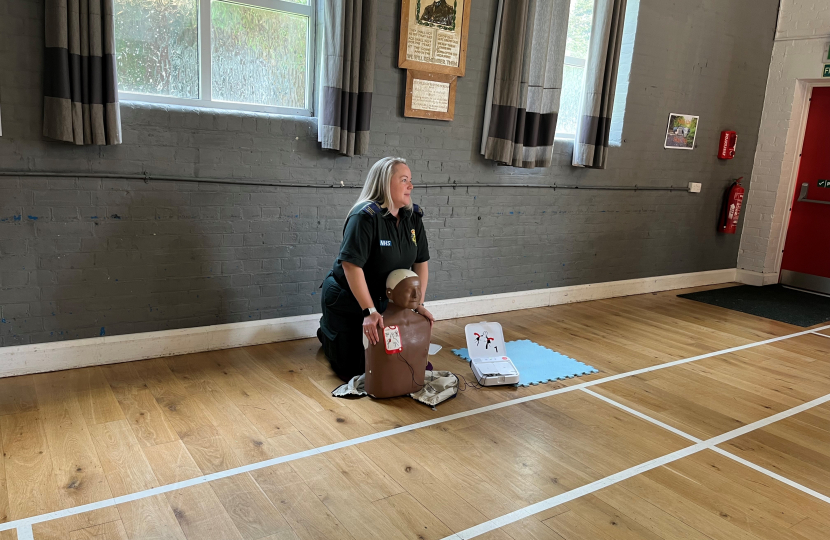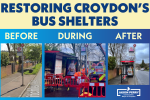
Earlier today, 194 people attended an event organised by KENDRA and run by London Ambulance Service Paramedics on how to respond effectively in life-threatening emergencies. It covered various scenarios such as stroke, choking, heart attack, cardiac arrest, severe burns, as well as the proper use of a defibrillator and basic CPR techniques.
The one-hour sessions, which took place at Kenley Memorial Hall, commenced at 10am and were repeated hourly until 4pm. The sessions were conducted by experienced paramedics who provided practical demonstrations and valuable insights into emergency response procedures, and it was good to see children in attendance as well.
The sessions were in three parts:
1. Recognising the difference between a cardiac arrest and a heart attack, and what do to in both situations, and how to recognise if someone is having a stroke

2. How to deal with a burn, and how to help someone who is choking

3. How to give CPR and administer a defibrillator.

One of KENDRAs committee members life was saved by a stranger knowing these skills when he had a heart attack. Knowing that 194 people in Kenley are now newly trained is good for us all.
In October 2022, I wrote a an article: Save lives - put your defibrillator on the map and last year spoke about Funding available for defibs. You can see where defibs are in Kenley on The British Heart Foundation’s Defib Finder map, but as the paramedics today made clear, the most important things to do in a cardiac arrest situation is to call 999, as the service will tell you exactly what to do. If you are on your own, you must continue giving CPR rather than leaving the patient to find a defib.
Congratulations to KENDRA for organising such a useful and potentially life-saving day, and for putting up so many signs to let people know that it was taking place.




